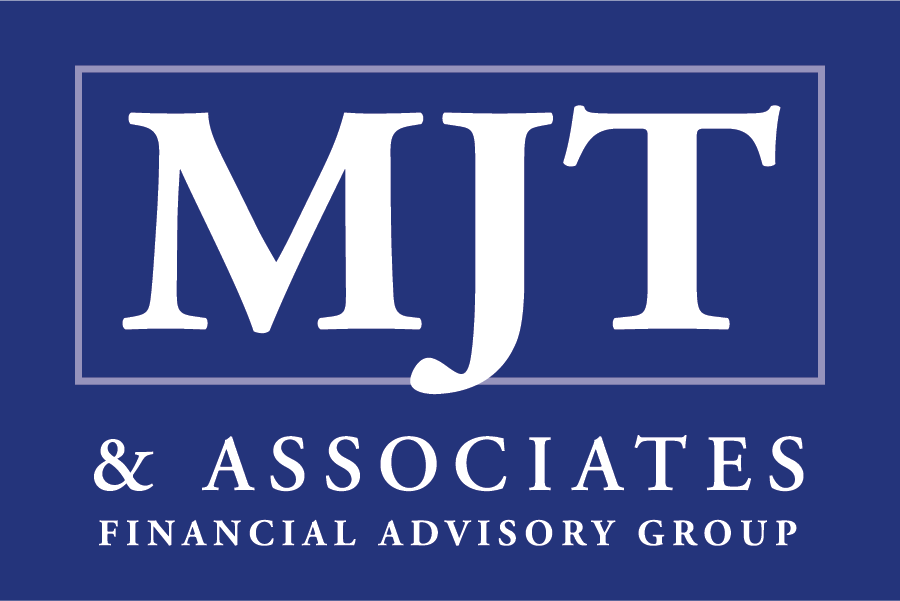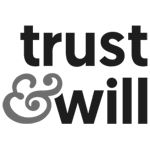As you work hard to build your wealth and secure your financial future, don't overlook the power of effective tax planning. By strategically managing your taxes, you can significantly increase your wealth over time. However, navigating the complex world of taxes requires expert knowledge and strategies. That's where professional tax planning services come in.
In this article, we will explore how you can maximize your wealth through effective tax planning. We will dive into expert strategies that can help you minimize your tax liability, take advantage of available deductions and credits, and optimize your overall financial situation. Whether you are an individual taxpayer or a business owner, these strategies can help you retain more of your hard-earned money.
Our experienced professionals understand the intricacies of tax planning and can guide you through the process. With their expertise, you can take advantage of the latest tax laws and regulations to optimize your financial success. Don't let taxes eat into your wealth – learn how to proactively plan and minimize your tax burden to maximize your financial potential.
The Importance of Effective Tax Planning
Effective tax planning plays a crucial role in maximizing your wealth and financial success. It involves structuring your financial affairs in a way that minimizes your tax liability while remaining compliant with the law. By strategically managing your taxes, you can retain more of your income and assets, allowing for greater growth and financial security.
One of the key benefits of effective tax planning is the ability to take advantage of available deductions and credits. By understanding the tax laws and regulations, you can identify opportunities to legally reduce your taxable income. This can result in significant savings and increased cash flow, which can be reinvested or used to further grow your wealth.
Additionally, tax planning allows you to optimize your overall financial situation. It involves analyzing your income, expenses, and investments to identify opportunities for tax savings. By considering factors such as timing of income and expenses, retirement plans, and investment strategies, you can minimize your tax burden and maximize your wealth accumulation.
Common Tax Planning Strategies
There are several common tax planning strategies that individuals and businesses can employ to minimize their tax liability. These strategies are based on leveraging available deductions, credits, and exemptions to legally reduce taxable income. Let's explore some of the most effective strategies:
Maximizing Deductions: Deductions are expenses that can be subtracted from your taxable income, reducing the amount of income subject to tax. By maximizing your deductions, you can lower your overall tax liability. Common deductions include mortgage interest, state and local taxes, medical expenses, and charitable contributions.
Utilizing Tax Credits: Tax credits directly reduce your tax liability on a dollar-for-dollar basis. They are particularly valuable as they provide a greater benefit than deductions. Examples of tax credits include the Child Tax Credit, Earned Income Tax Credit, and education-related credits. Taking advantage of these credits can significantly reduce your tax bill.
Timing of Income and Expenses: Timing plays a crucial role in tax planning. By strategically timing the receipt of income and payment of expenses, you can shift your tax liability between years. For example, if you expect to be in a higher tax bracket in the coming year, you can defer income to the following year or accelerate deductible expenses into the current year.
Investing in Retirement Plans: Contributing to retirement plans such as 401(k)s and IRAs can provide both immediate and long-term tax benefits. Contributions to these plans are often tax-deductible, reducing your current taxable income. Additionally, investment earnings within these plans grow tax-deferred, allowing for greater accumulation of wealth over time.
Tax-Efficient Investment Strategies: Investing in a tax-efficient manner can help minimize your tax liability on investment income. Strategies such as tax-loss harvesting, where investment losses are used to offset gains, can reduce your overall tax burden. Additionally, investing in tax-advantaged accounts like Health Savings Accounts (HSAs) and 529 college savings plans can provide tax benefits.
Understanding Tax Deductions and Credits
One of the fundamental aspects of effective tax planning is understanding and utilizing tax deductions and credits. These are valuable tools that can help reduce your taxable income and ultimately lower your tax liability. By taking advantage of the deductions and credits available to you, you can significantly increase your wealth.
Tax deductions are expenses that you can subtract from your taxable income, reducing the amount of income that is subject to tax. Common deductions include mortgage interest, state and local taxes, medical expenses, and charitable contributions. By carefully tracking and documenting these expenses, you can ensure that you are claiming all the deductions you are entitled to.
Tax credits, on the other hand, directly reduce the amount of tax you owe. They are typically more valuable than deductions because they provide a dollar-for-dollar reduction in your tax liability. Examples of tax credits include the Child Tax Credit, the Earned Income Tax Credit, and education-related credits. It is important to research and understand the credits that you may be eligible for to maximize your tax savings.
Maximizing your tax deductions and credits requires careful planning and documentation. Keep detailed records of your expenses and consult with a tax professional to ensure you are taking advantage of all available deductions and credits. By doing so, you can minimize your tax liability and keep more money in your pocket.
Maximizing Tax Savings through Retirement Plans
Another powerful strategy for maximizing your wealth through tax planning is to take advantage of retirement plans. These plans offer significant tax advantages and can help you save for retirement while reducing your current tax burden.
One popular retirement plan is the Individual Retirement Account (IRA). Contributions to a traditional IRA are tax-deductible, meaning you can reduce your taxable income by the amount of your contribution. Additionally, your investments within the IRA can grow tax-deferred until you withdraw the funds in retirement. This allows your investments to compound over time without being taxed, maximizing your potential returns.
Another retirement plan option is the 401(k), typically offered by employers. Similar to a traditional IRA, contributions to a 401(k) are tax-deductible. Additionally, many employers offer a matching contribution, meaning they will match a certain percentage of your contributions. This is essentially free money that can greatly boost your retirement savings.
By maximizing your contributions to retirement plans, you can not only build a nest egg for your future but also reduce your taxable income in the present. This can result in significant tax savings and help you grow your wealth more efficiently.
Utilizing Tax-Efficient Investment Strategies
When it comes to maximizing your wealth through tax planning, one effective strategy is utilizing tax-efficient investment strategies. By carefully choosing your investments, you can minimize the impact of taxes on your overall returns. Here are some key strategies to consider:
1. Tax-Advantaged Retirement Accounts
One of the most effective ways to minimize your tax liability and maximize your wealth is by utilizing tax-advantaged retirement accounts. These accounts, such as 401(k)s, IRAs, and Roth IRAs, offer various tax benefits that can help you grow your wealth over time.
For example, contributions to traditional 401(k)s and IRAs are typically tax-deductible, meaning you can reduce your taxable income in the year of contribution. This allows you to defer taxes on your investment gains until you withdraw the funds in retirement when you may be in a lower tax bracket.
On the other hand, Roth IRAs offer tax-free growth and tax-free withdrawals in retirement. While contributions to Roth IRAs are not tax-deductible, the earnings grow tax-free and can be withdrawn without incurring any taxes once you reach the age of 59 1/2.
By strategically utilizing these tax-advantaged retirement accounts, you can significantly reduce your tax liability and maximize your wealth over time.
2. Capital Gains and Losses
Another tax-efficient investment strategy is managing your capital gains and losses. When you sell an investment that has appreciated in value, you will generally incur capital gains tax on the profit. However, by strategically timing your sales and offsetting gains with losses, you can minimize your overall tax liability.
For example, if you have investments that have declined in value, you can sell them to realize capital losses. These losses can be used to offset any capital gains you may have realized, reducing your overall tax burden. If your capital losses exceed your capital gains, you can even use the excess losses to offset up to $3,000 of ordinary income each year.
By carefully managing your capital gains and losses, you can maximize your after-tax returns and retain more of your investment gains.
3. Tax-Efficient Asset Location
In addition to tax-advantaged retirement accounts and capital gains management, another strategy to consider is tax-efficient asset location. This strategy involves placing your investments in the most tax-efficient accounts based on their tax characteristics.
For example, investments that generate a lot of taxable income, such as bonds or high-dividend stocks, are better suited for tax-advantaged retirement accounts. By keeping these investments within these accounts, you can defer taxes on the income they generate and maximize your after-tax returns.
On the other hand, investments that generate primarily capital gains, such as growth stocks, may be more suitable for taxable brokerage accounts. Capital gains are typically taxed at a lower rate than ordinary income, so by holding these investments in taxable accounts, you can take advantage of the preferential tax treatment.
By strategically locating your investments based on their tax characteristics, you can minimize your tax liability and maximize your overall after-tax returns.
Conclusion - Taking Control of Your Finances through Effective Tax Planning
In conclusion, effective tax planning is a crucial aspect of maximizing your wealth and achieving financial success. By employing expert strategies, such as utilizing tax-efficient investment strategies, you can minimize your tax liability and retain more of your hard-earned money.
Whether it's taking advantage of tax-advantaged retirement accounts, managing your capital gains and losses, or employing tax-efficient asset location, there are various strategies at your disposal. However, it's important to remember that tax planning is complex and ever-changing. Seeking the guidance of experienced tax professionals can help ensure you make the most of these strategies and navigate the intricacies of the tax landscape.
Don't let taxes eat into your wealth – take control of your finances through effective tax planning. Stay tuned for our forthcoming articles where we will delve deeper into specific tax planning strategies and how they can benefit you. With the right approach and professional guidance, you can optimize your financial success and maximize your wealth for years to come.











